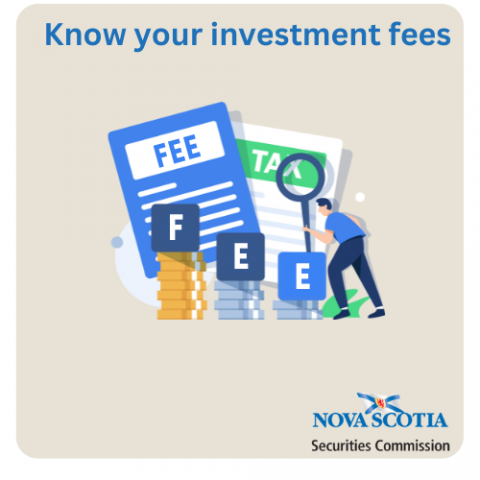Submitted by nsscadmin on

In May we published a blog post on the Annual Fees and Charges Report. This post went over what’s included in the annual report that outlines the fees and charges you have paid on your account during the previous year. This led to more questions about fees. Specifically what kinds of fees and charges investors typically pay. To get you started on the road to knowing your investment fees we’ve briefly outlined some common fees below.
Management Fees:
Portfolio managers and other registered advisers charge a fee based on the assets under management or the portfolio’s value. This fee, typically expressed as a percentage, can be negotiated when you hire your adviser and is the cost of managing your portfolio.
Management Expense Ratio:
If you are purchasing a managed investment product like a mutual fund or an ETF, you will pay a share of the combined cost of managing the fund, including administrative, legal, accounting and management expenses. The Management Expense Ratio (MER) is the total of all expenses and typically expressed as a percentage of the fund’s total assets.
Trailing Commissions:
Fund companies pay a trailing commission to the dealer who sold the fund for each year that the client remains invested in the fund. This fee typically comes out of the management fee, so you may not notice it being paid. Effective June 2022, the Canadian Securities Administrators (CSA) prohibited dealers that do not make a suitability determination, such as on an online trading platform that allows investors to purchase and sell their own investments, from receiving trailing commissions.
Loads:
Some investment products charge a front-end load, which is a commission paid by the investor at the time of purchase. If you purchase a no-load investment product there is no charge. Prior to June 2022, some investment products charged back-end loads, also knowns as deferred sales charges (DSC). Canadian securities regulators prohibited DSCs in June 2022, but if you own an investment product purchased prior to the prohibition it may still have DSCs attached to it. Investment products with DSCs had a redemption fee schedule, meaning the longer you held the fund the less back-end load you would pay when selling it. Eventually, often after seven years, the DSC would be eliminated.
Brokerage Commissions:
Some brokerages may charge you a commission for every transaction you make, including the purchase and sale of securities. The range of commissions can be considerable depending on the brokerage firm you use.
Account Fees:
Some brokerages may charge account maintenance fees, inactivity fees, or fees for certain services such as receiving paper statements instead of electronic ones.
Fee for Service:
Some advisers try to simplify the fee structure by charging fees for service. They would charge a set rate for services offered and not charge any commissions. This set rate may also be based on hours of work, or a flat rate dependent on the amount of money invested.
Miscellaneous Fees:
Depending on how you use your account there may be other fees attached as well. For example, if you have a margin account you may be charged interest on any margin balances, or if you trade foreign securities there may be currency conversions fees. You may also pay fees related to taxes such as withholding taxes, or income tax on investments held outside a registered account.
